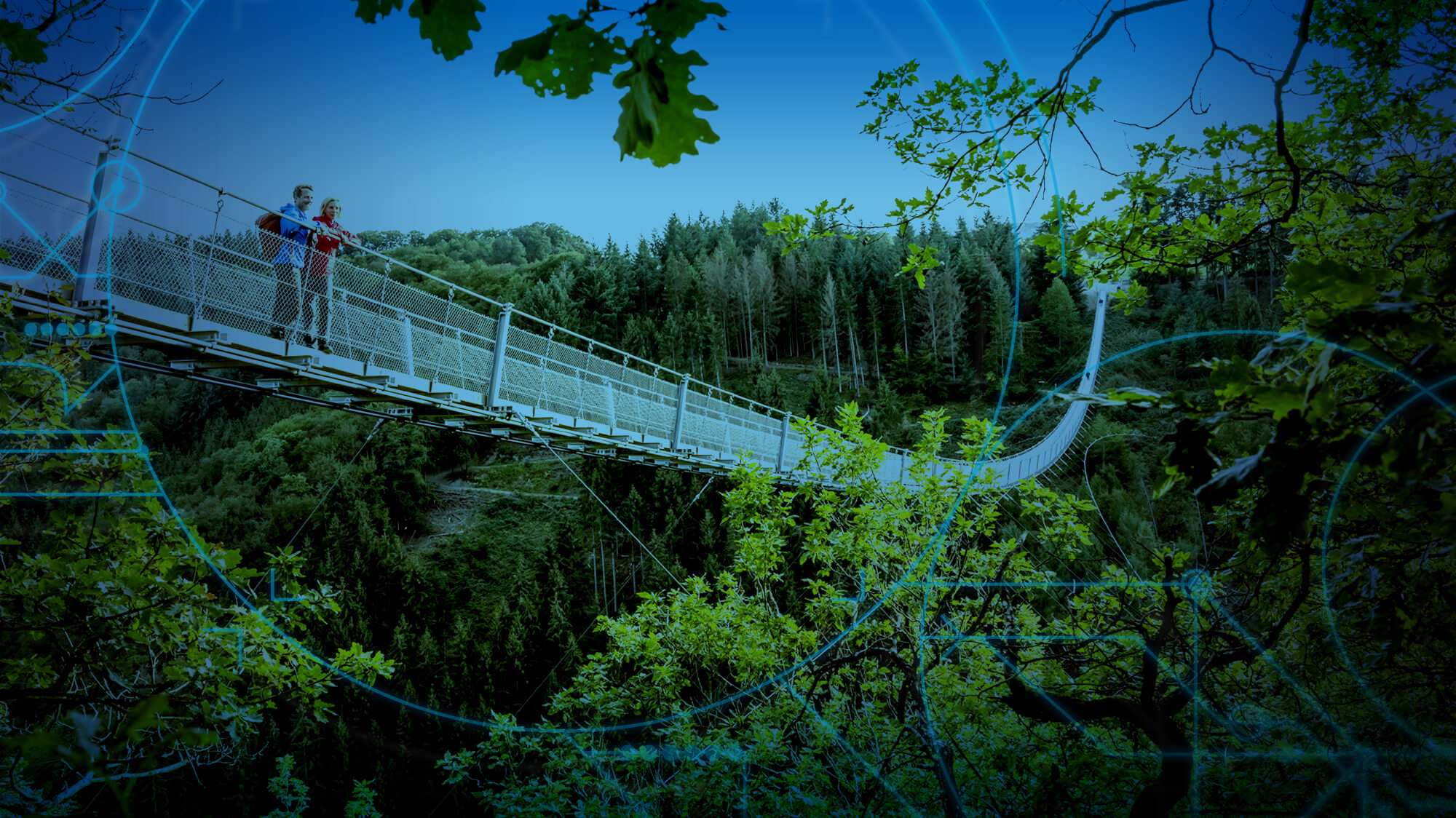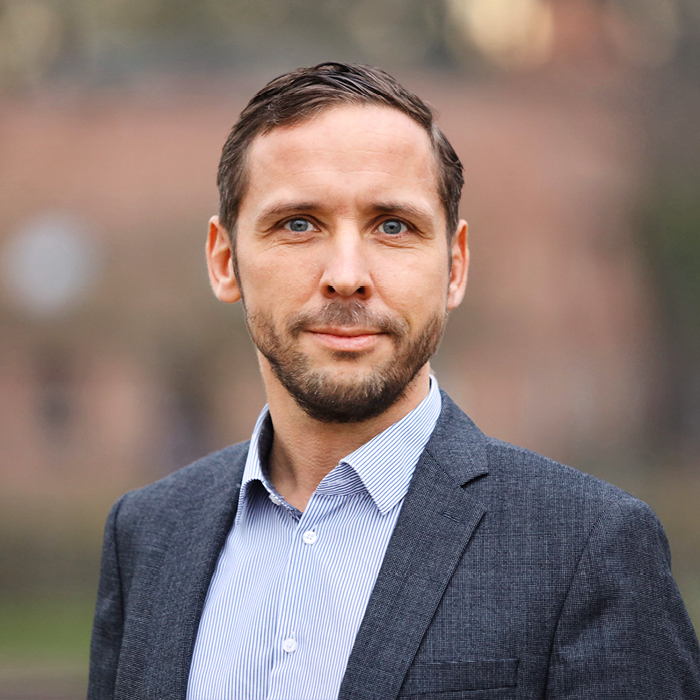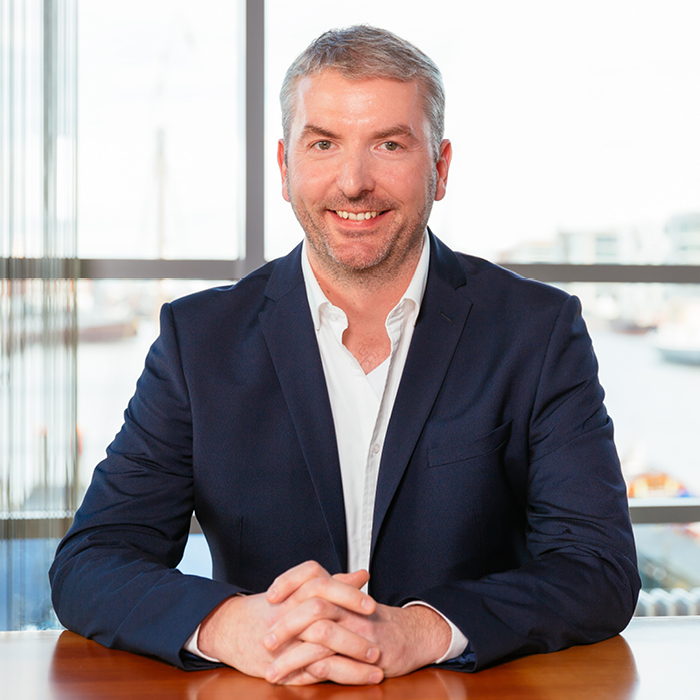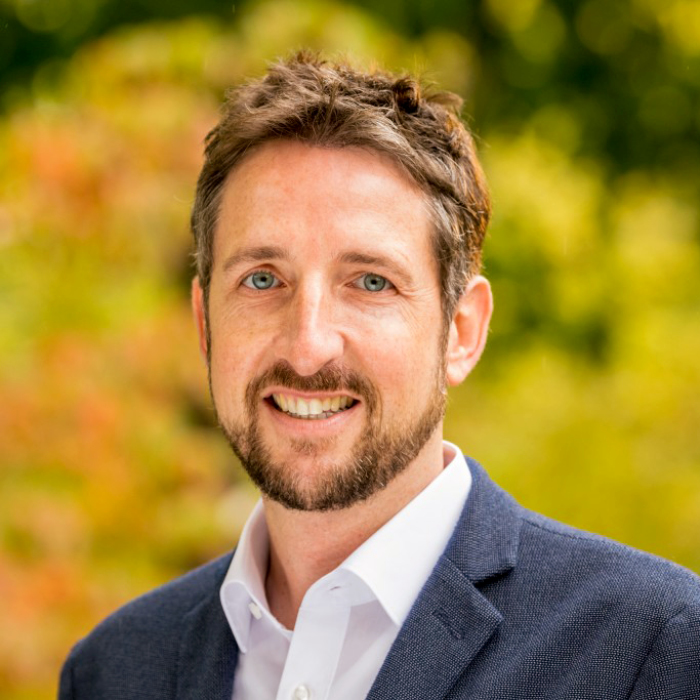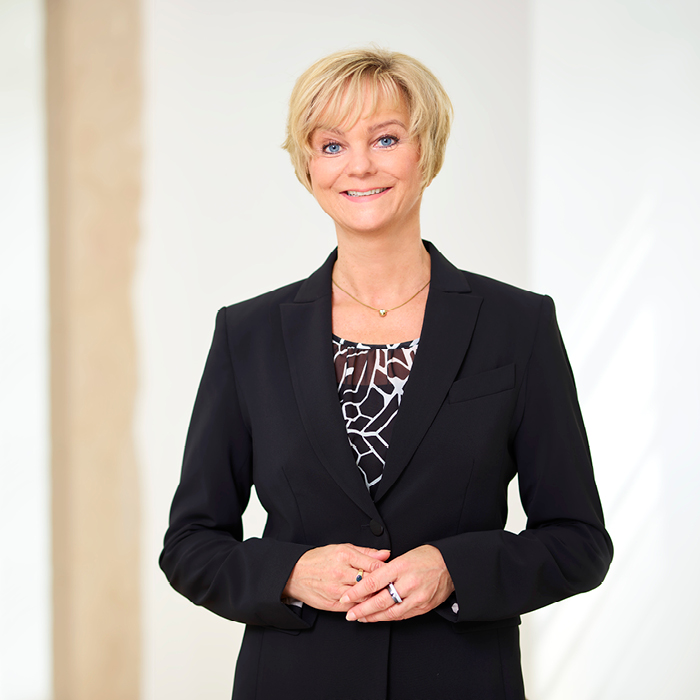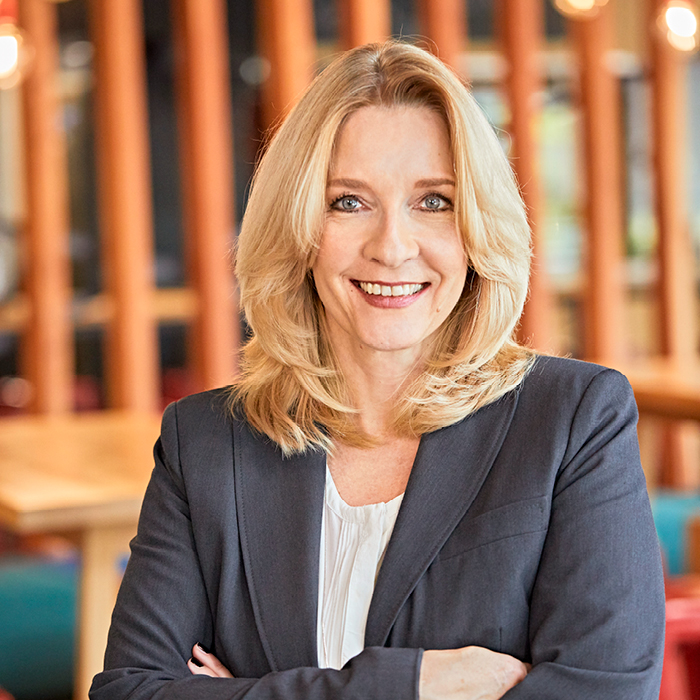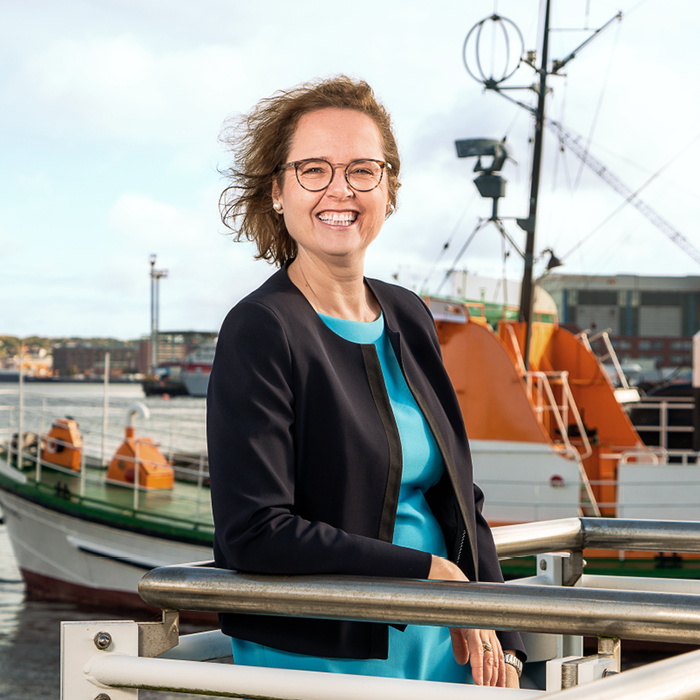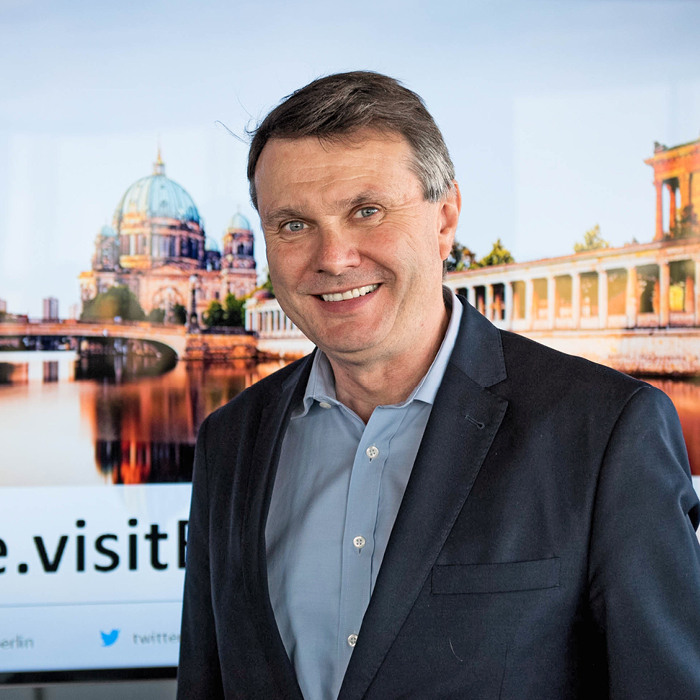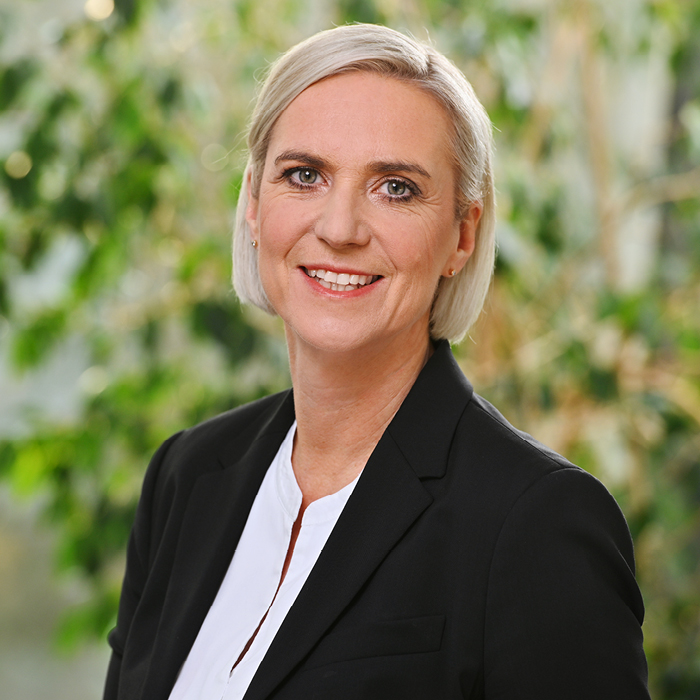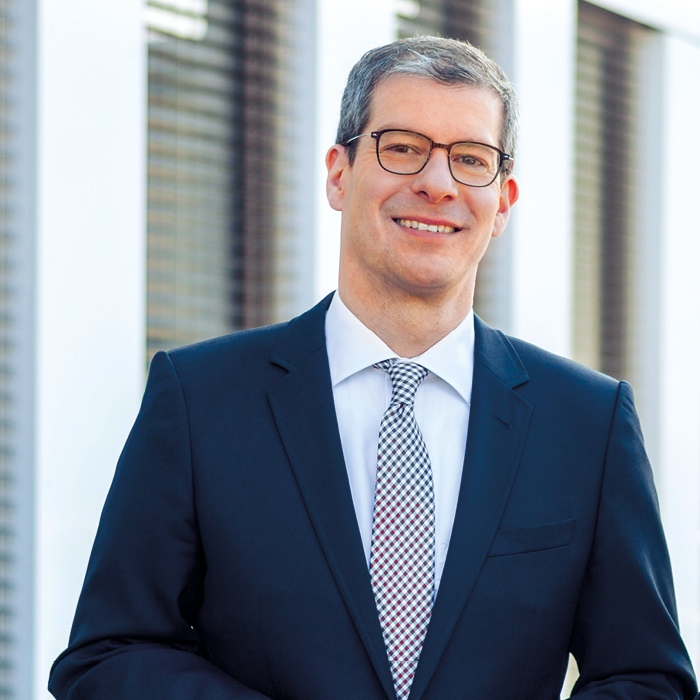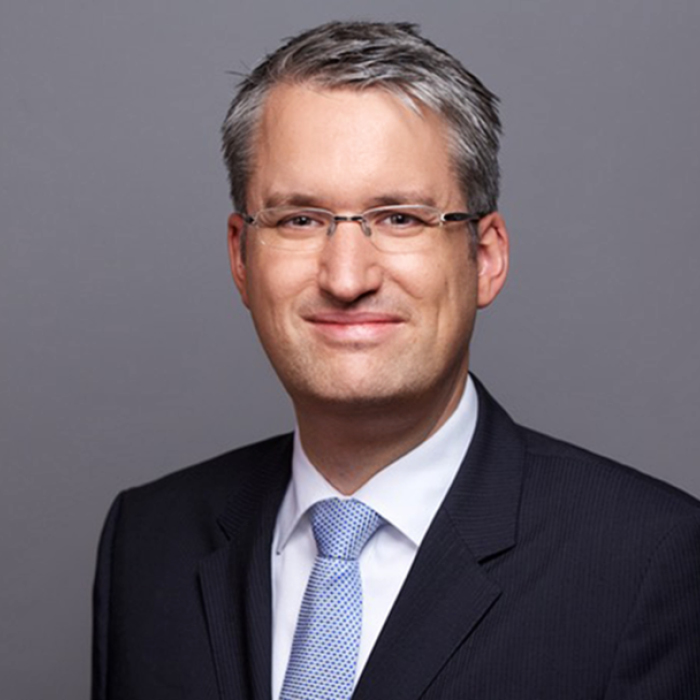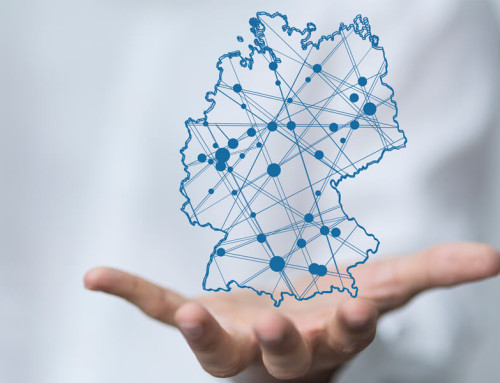Artificial intelligence will bring rapid changes to tourism. The organisations that represent the regions and the individual destinations are beginning to lay the groundwork to ensure that this transition is a success. The first AI applications are already at work in the field. An overview.
AI will open up new possibilities in many areas for society and business. And it will do so for tourism too. Machine learning and algorithms are already hinting at the possibilities, and while we like to write about these scenarios in the future tense, this is a future that will be upon us quicker than we imagine. At Tourismus NRW, we have started to follow this development without getting bogged down in the question of whether we are actually working with AI or merely an intelligent process. Our stated aim is to establish self-learning destination management.
As a first step, we are developing our existing DeinNRW progressive web app (PWA) into a smart system. One of our related projects is about tailor-made recommendations for barrier-free travel, for example. We also want to measure current visitor numbers at several hundred points of interest (POIs) and use this information to manage visitor flows via the PWA. Early next year, we are planning a hackathon with the aim of generating new ideas, including in the field of AI. In this context, our main task as a regional marketing organisation is to connect with the right networks.
Working with more than 400 regional and local partners, TMB Tourismus-Marketing Brandenburg GmbH uses the Brandenburg content network to maintain up-to-date records on various tourism data points, including 15,000 POIs, tours in German, English and other languages, and around 30,000 events. TMB takes a system-neutral approach to ensure that the information from these databases can be used in a variety of external services. For example, it is already possible today to record sensors or threshold values for visitor guidance per POI in the DAMAS database nationwide and to link them to other platforms for visitor control.
In addition to collecting data that is useful for end customers, TMB is currently developing a crawler that can independently collect information about the digital presences of players in Brandenburg’s tourism sector. This information is intended to help companies in the sector to automatically analyse and benchmark their weak points without having to fill in questionnaires, for example. At the same time, this innovative tool will be used to provide knowledge transfer services that meet individual requirements.
We are already using artificial intelligence with great success in data management, for example. With the support of the Mittelstand 4.0 digital centre of excellence, we ran a prediction model based on text mining to test the classification of our excursion destination data. As a result, we were able to use AI-assisted data management to optimise the category assignment for, and improve the quality of, data collected from a range of different sources. We are planning further AI projects as part of a modernisation drive that will support the federal state’s digitalisation strategy in the tourism sector over the next three to five years. Areas of application include end-customer marketing, partner communication and the publicising of offers.
We also see great potential for B2B processes by making the important but time-consuming task of collecting and updating data easier for all parties involved. For example, AI can provide support where sensors cannot be used, or where sensor technology will not be available for the foreseeable future. We are also using AI in our online marketing via partners such as Google.
Digitalisation and artificial intelligence are hot topics at the moment, even in tourism, where the focus is still very much on the service provided by people. But there are tasks that can be delegated. Erlebnis Bremerhaven GmbH (EBG) has taken up this challenge in a new joint project with the Institute of Artificial Intelligence Methods and Information Mining (AIM) and the AI lab at Bremerhaven University of Applied Sciences. The project involves preparing Pepper, a humanoid robot, for deployment at the Schaufenster Fischereihafen tourist information office, where it will answer visitors’ questions. An algorithm ensures that the robot continues to learn so that it can provide better answers.
Who is asking will be just as important as the question itself. Pepper can recognise not only language and mood but also whether it is talking to a child or an adult. In January, a chatbot was launched on the bremen.de website to help people use the bulletin board and to answer questions about advertising and sector listings. The AI is able to answer simple questions such as ‘search for an apartment’ around the clock and can even help with more complex tasks such as placing advertisements.
We are devoting a lot of time and effort to getting the basics of digitalisation right so we can use artificial intelligence under the best possible conditions. Our initial objectives for AI deployment are in the areas of data maintenance and quality management, visitor guidance and conversational interfaces. In marketing, we see great potential in using AI to improve our targeting and upselling, for instance in the context of live target group evaluations and when showing specific ads, or in digital guest folders and apps. Since AI requires huge amounts of data to learn, we need to think big to ensure that our solutions are efficient. In principle, we are open to the possible applications of these technologies, and we believe they will have a major role to play in the coming years.
As a key technology of the digital transformation, AI offers great potential to the tourism industry. In Saxony, the strategic ‘Digital architecture for tourism in Saxony’ project is laying the foundations for using AI applications in the future, whether for customer communications, for the application of new innovative technologies, for new content formats or for managing visitor flows. The potential uses include image recognition, data analysis, intelligent assistance systems, and virtual and augmented reality applications. Artificial intelligence is changing the way we communicate and interact with people who want to receive information specific to their travel experience and their stage of the traveller journey.
Artificial intelligence is an important tool for Bavaria Tourism (BayTM) and for destination management and marketing. Using AI to process data can provide important insights such as capacity forecasts for managing visitor flows. There has been a lot of talk about this type of application, and it is indeed playing a big part in sustainable, low-impact tourism that is accepted by the local population. The first version of Ausflugsticker Bayern, a travel information service for Bavaria, was launched in 2020. AI is to be used here in particular to predict workloads in a AI is mainly used here to predict visitor numbers based on data from POIs, some of which is collected over a period of a year. This data set can be supplemented with weather forecasts and data on holidays, weekends and public holidays to make AI-assisted forecasts. Ausflugsticker Bayern offers event information and tips for excursions, live traffic and parking updates, and waiting times for popular attractions, mountain railways and lake cruises. AI-assisted forecasts such as these have become essential to the effective management of visitor flows.
To make the most of the opportunities and possibilities presented by AI applications, Thüringer Tourismus GmbH (TTG) is currently concentrating on the Thuringian Content Architecture for Tourism (ThüCAT) project with its partners and neighbouring regions. Tourism-related information is structured in the federal state’s database in line with the international schema.org standard and can thus be directly processed by AI applications.
One of the first AI applications we have in development is designed to present targeted tourism offerings and inspiring content. The focus of future AI applications will be on assisting and guiding the visitor. At TTG, we believe that the quality of the available data is essential to AI applications. Our content architecture uses interfaces to also access free, open-data sources to produce an inventory of relevant data.
For us, using artificial intelligence is already an essential part of being a better host, and it will become even more so in the future. And there are two reasons for this. First, AI takes repetitive and monotonous tasks, such as data maintenance, off our hands. We can use the time saved to interact more with our customers, establish direct relationships and engage in communication at a more emotional level. Second, AI systems allow us to leverage matching methods to anticipate predictable requirements. We are now better able to meet visitors’ needs at an early stage by providing tailored content on the website, in newsletters and on our app. As a result, we have made a conscious effort to move away from a one-size-fits-all approach in our automated marketing communications. Excellent figures for open rates, sales, and, most importantly, visitor numbers, show that we are on the right path.
At Tourismus-Agentur Schleswig-Holstein (TA.SH), we have been using AI for some time in our campaigns. TA.SH has been working with St. Elmo’s Tourismusmarketing, an agency specialising in online marketing, since 2020. For example, we ran a cycling campaign online from July to September. Using three different animated visuals and snappy slogans, we promoted cycling in our region in the far north of Germany to our domestic source markets. Thanks to programmatic advertising, a personalised ad was displayed to users completely automatically and in real time – in this instance one of our three bike visuals. Anyone who was curious about the cycling characters in the TA.SH campaign and clicked the ad was redirected to the landing page, sh-fahrradland.de. We have been focusing on online marketing since 2020 and are increasingly relying on AI to reach our audience.
As connectivity and the use of new digital technologies increase, so does the importance of data. While there is still a long way to go before we reach the third and highest evolutionary stage of AI, i.e. real AI, structured data already forms the basis for machine learning. This allows for decisions to be supported or even made automatically. The focus of visitBerlin in this area is on big data projects involving, for example, the recording of visitor numbers via mobile phone data or the standardisation and consolidation of structured data.
We have taken a further step towards digital, automated data management with our Public Ticket Solution, a combination of online ticket sales and data-driven, hassle-free access management. Here, data-driven channel management can unlock new sales opportunities. What’s more, by linking Public Ticket Solution to existing point of sale systems, or by providing hardware or software for validation, we can ensure that visitors can enter a particular POI without having to redeem vouchers or spend a long time queuing. Detailed statistics also provide us with valuable information on visitor booking behaviour, with socio-demographic data and with real-time visitor numbers, all in compliance with data protection regulations. These analyses allow us to identify new target groups and optimise sales activities.
Tourismus Marketing Niedersachsen GmbH is paving the way for the use of AI applications in the region’s tourism sector, and has established the Niedersachsen Hub as the basis of a shared open database for Lower Saxony as a travel destination. AI not only plays a role in the communication of information to third parties but should also lead to significantly improved visitor flow management, for example by combining visitor, weather and time data to make automatic forecasts that can be published in real time.
Nordsee Niedersachsen is already running an innovative project using sensors to digitally manage visitor flows. The real-time data is fed into the Niedersachsen Hub to enable automated analyses and forecasts. In marketing, we already use programmatic adv We are already using programmatic advertising in media planning for our marketing. Automated and data-driven purchasing of digital advertising space allows us to access premium inventory and high-reach publishers in a cost-effective way. Programmatic advertising uses data to target exactly the right audience. Looking to the future, it is safe to say that AI will change the tourism industry and redefine the customer experience. The task now is to lay the necessary foundations.
Whether managing visitor flows, precisely targeting campaigns or communicating via voice systems, artificial intelligence will play a much greater role in the near future than it does today. Not least because AI is already the norm on many booking portals and other providers. Robust base data is essential if the transition to AI-assisted tourism is to succeed. As a regional marketing organisation, we see our main task in helping our destinations to capture data in a structured way. We are already using AI in B2B communications, where a chatbot can answer queries relating to database management. And in our new traffic light system for leisure activities, AI will help us to recognise patterns and optimise visitor flows much better than we could manually. These first steps are just the very beginning of a development that will rapidly change tourism.
In the future, our focus will be on the digital identity of our visitors, as digital personas are – thanks to AI applications in the background – an area that reaches far beyond the realm of marketing. as digital personas are – thanks to AI applications in the background – an area that reaches far beyond the realm of marketing. Semantically structured data is the basis for future AI applications such as chatbots and digital voice assistants, for efficient visitor flow management and for business intelligence, and for applications that present visitors with information about Hessen and the region’s diverse offerings. Through our 2019–2024 strategic marketing plan, we hope to establish Hessen Tourismus as a digital centre of excellence for the local tourism industry. The first step is to design and set up a state-wide database to break down data silos. By standardising and processing data in line with the open-data principle, we will make it possible for the sector to feature tourism content on all relevant channels.
Drawing on the rapid evolution of technological possibilities and services, regional marketing organisations are increasingly taking on key management tasks at destination level. In Saxony-Anhalt, our visitors’ expectations and requirements are at the heart of all our activities. The SAiNT (Saxony-Anhalt intelligent Network Technology) projects aims to break down the data silos that exist in the region. Tourism data sets, from points of interest to hiking trails and canoeing, are being combined with data from the regional development agency, such as the availability of premises in commercial and industrial districts.
This database will then form the basis for future developments, which in Saxony-Anhalt will also involve artificial intelligence. In the medium term, SAiNT users will have access to real-time data from visitor counting systems. Building on this data, AI can play a decisive role by predicting visitor numbers, for example.
To create the foundations for future AI applications, the Saarland Tourism Board (TZS) has made structured data capture an integral part of its digital data management. We and our partners maintain tourism information in a shared database using an internationally recognised standard, so that the information is readily accessible to open data sources and can be processed by AI applications. This enables the development of more efficient and user-oriented customer enquiry handling, and optimises processes through the predictive analysis of booking ratings, desired destination forecasts and tourist flows.
TZS already relies on AI applications in key areas of its campaign planning. We use programmatic advertising and programmatic video to granularly address our core demographics, which are based on the meta target groups defined by the Sinus Institute. And we are very successful at targeting potential guests with tailored content and automated marketing via AI systems.
You can find more information on the topic of AI in our Artificial Intelligence magazine.


